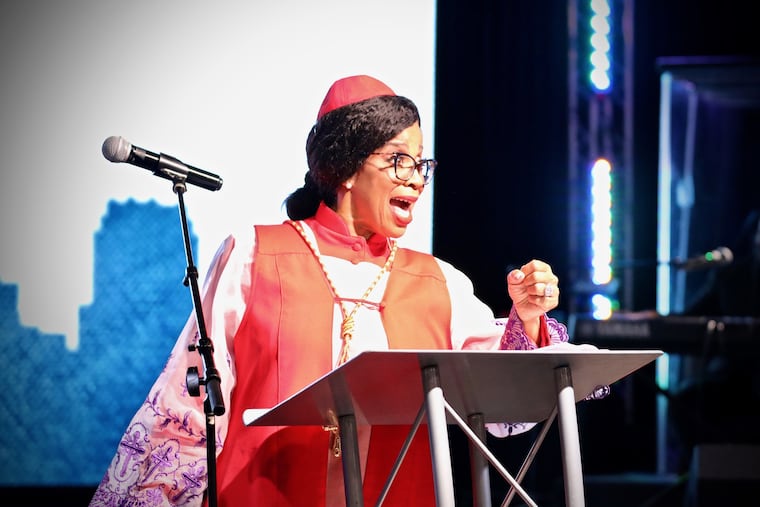People with obesity face persistent stigma and discrimination. It must stop.
Obesity is a disease with complex causes, including genetics. But many believe someone is obese because they are lazy. As a result, they are bullied or passed over for a job. It's not fair.

Philadelphia is home to some of the best hospitals and doctors, and yet our citizens die younger than those in only a handful of other cities nationwide. As the first and only female archbishop in the city of Philadelphia and a lifelong resident, I care for the souls and physical well-being of my people. I hold their hands as they face life’s biggest challenges, including managing illnesses that are common and preventable, yet deadly.
Nowadays, many of the people I sit with are struggling with obesity.
While almost every disease hits Black America hardest, obesity is an epidemic that stands alone. Nearly half (49.6%) of Black adults suffer from obesity, compared with 41% of white adults and 16% of Asian adults. Obesity is a gateway to many other diseases, including Type 2 diabetes, high blood pressure, heart disease, stroke, kidney failure, and arthritis. Type 2, or adult-onset, diabetes is particularly tragic for Black Americans, who are 60% more likely to develop diabetes and twice as likely to die from it than their white counterparts.
In the Black community, obesity has reached a crisis point.
“In the Black community, obesity has reached a crisis point.”
This is a complex problem with no easy solution. One factor that certainly doesn’t help is the persistent stigma and discrimination that people with obesity face.
Obesity is a disease rooted in complex genetic, environmental, and socioeconomic factors. But too many people believe that someone is carrying extra weight because they are lazy, irresponsible, and lack self-discipline. This stigma leads to any number of awful consequences, such as kids with obesity getting picked on at school, or adults with obesity getting passed over for jobs.
Tackling a problem of this magnitude — obesity — demands new thinking. We must understand that, like addiction, obesity is not a choice — it is a disease.
» READ MORE: BMI: the mismeasure of weight and the mistreatment of obesity
Even as medical experts recognize obesity as a disease, major components of our health-care system discriminate against it. For example, Medicare does not cover anti-obesity medicines. Yet it covers treatment for diseases caused by obesity, such as diabetes and high blood pressure. This policy is backward.
Instead, Medicare and other insurers should focus on providing access to obesity medication to prevent and treat the disease, which would drive down rates of the conditions it causes. This is not only the humane thing to do, it is also the most cost-effective.
Our public health leaders should collaborate with elected officials to teach each other how to motivate people and help change the communities where people live. The health-care system has work to do as well — often, people with obesity face obstacles to getting medical care, ranging from too-small blood pressure cuffs to scanning machines that won’t accommodate their size. It’s enough to discourage many people with extra weight from seeking care at all. Our system needs to do a better job of accommodating the millions of patients who are obese and helping them realize they deserve medical care.
For more than a decade, Congress has been considering a bill that would update Medicare’s rules to cover both behavioral therapy and anti-obesity medicines. The most recent iteration has broad bipartisan support — and could pass this year if Congress makes it a priority.
I believe God calls for us to care for the least fortunate. We have a chance to improve the lives of those who today are just statistics.
My community has been patient, but we are tired of waiting. Our society can do better. If we love all our neighbors — especially the most vulnerable — we can move forward together for the good of all.
Building a strong and healthy community won’t happen overnight. But if we commit ourselves and our neighbors to this cause, I believe we can create real, systemic, sustainable change.
Mary Floyd Palmer is the presiding bishop of the Philadelphia Council of Clergy and the first female archbishop in Philadelphia.